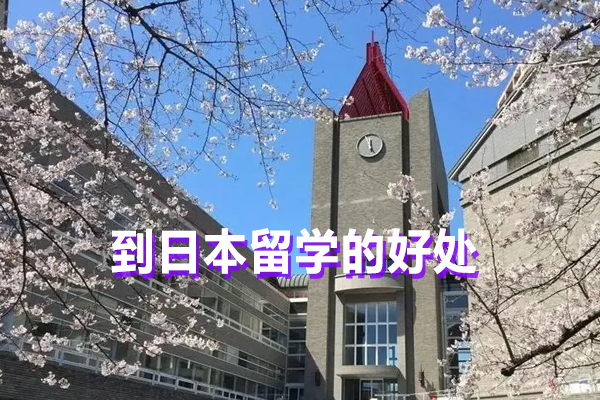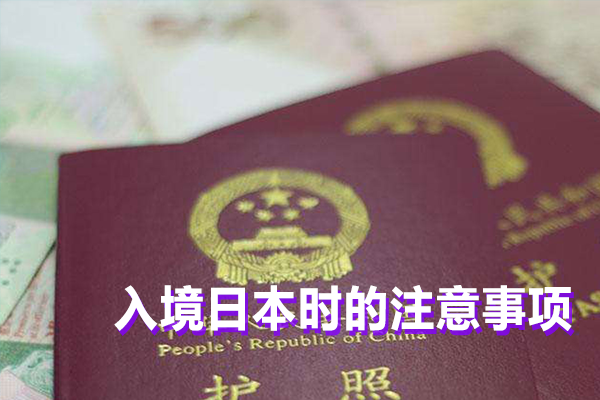Due to the limited number of university places in China, more and more people have considered studying abroad in recent years. For many Chinese, Japan is of course one of the popular study abroad destinations. However, it is inevitable that you will feel uneasy when living in a foreign country for the first time: you are afraid of choosing the wrong school, you are afraid of missing out on formalities, and you are afraid of not being able to adapt.
In fact, it is not difficult to study at a university in Japan as long as you follow the appropriate steps to apply and prepare.This article will explain in detail the various steps to study abroad at a Japanese university, so that you can feel at ease and spend a fulfilling university life in Japan.

Basic knowledge of studying in Japan
Universities for studying abroad in Japan are schools for those who have completed high school courses or received 12 years of special education.According to statistics, there were 795 universities in Japan in 2020.
Universities mainly offer three types of programs: doctoral, master's and bachelor's. The bachelor's program usually lasts for 4 years, and the subjects can be divided into "science" and "liberal arts". Science subjects include natural sciences and engineering, while liberal arts subjects include literature and foreign languages. In addition, economics, social sciences, business, etc. are generally classified as liberal arts.
The tuition fees, admission requirements, and even career prospects of liberal arts and science departments are different, so please consider your interests, abilities, and future carefully before making a choice.
Benefits of studying in Japan

Studying in Japan has many benefits. In addition to learning how to live independently, you can also improve your Japanese language skills and pave the way for future work in Japan.
Before we start introducing detailed information such as school selection criteria and application methods, let's first understand why you should study abroad in Japan.In addition to learning to live independently, broadening your horizons and increasing your knowledge, studying in Japan also has the following benefits.
- Tuition fees are cheaper than in Western countries such as Europe and the United States
- It is easier to adapt to life in Japan
- Improve your Japanese language skills
- It is easier to work in Japan after graduation
- After graduation, you can apply for permanent residency after working for a few years.
How is studying in Japan? 10 advantages and 6 disadvantages of studying in Japan
The future of Chinese students studying in Japan

After graduating from a Japanese university, you can choose to stay in Japan to work. If you stay, you can get permanent residency in as little as one year.
There are two main options for studying in Japan: work in Japan or return to work for a Japanese company. If you work in Japan, you can apply for permanent residency in Japan in as little as one year and settle down there.
Finding a job in Japan
In recent years, overseas graduates have become increasingly popular among Japanese companies.One of the reasons is Japan's declining birthrate and aging population.
According to the forecast of Japan's Ministry of Health, Labor and Welfare, Japan's labor force will be 10 million less than the current level by 2030. The shortage of manpower in some industries, such as IT, will become more serious. This has led more Japanese companies to consider hiring foreigners.
Because of their experience of living in Japan, Japanese companies have less worries when hiring foreign graduates, because their Japanese language skills are more guaranteed and they can adapt to life in Japan more easily.
After working for a few years, you can apply for permanent residency
If you work in Japan and pay taxes according to the law, you can apply for permanent residency in Japan (permanent residence) after 5 years and move to Japan.
If you score 70 points or more on the Highly Skilled Personnel Scoring Table, you can apply for permanent residency after working in Japan for 3 years. If you score 80 points or more, you can apply for permanent residency after working for 1 year!
Since your school and degree will affect your highly skilled personnel score, if you plan to move to Japan, you may want to plan how to get a higher score on the highly skilled personnel score table before studying abroad.
Can work in Japanese companies
If you plan to stay in Japan after graduation, you can also work for Japanese companies or companies that have frequent business dealings with Japanese companies. If you work for these companies, you can make full use of your Japanese language skills and the knowledge you learned while studying abroad.
Costs of studying in Japan

The average cost of studying at a Japanese university for one year is over 1.5 million yen (about 120,000 RMB). You can help with living expenses through part-time work or scholarships.
Now let’s talk about a more practical issue: money.
There are three main expenses for studying in Japan: tuition, rent and living expenses. Although studying in Japan is much cheaper than studying in Europe and the United States, it still costs at least 1.5 million (about 120,000 RMB) per year.
Unless you come from a very wealthy family, it is recommended that you work part-time in Japan to earn some living expenses. Alternatively, you can apply for scholarships and tuition reductions.
Tuition fees for studying in Japan
Universities in Japan are divided into three categories: national, public, and private.The tuition fee for national and public universities is about 400,000 yen (about 35,000 RMB) per year, which is cheaper than studying abroad in China.The tuition fees of private universities are more expensive than those of national and public universities, about 750,000 yen (about 68,000 RMB) per year.
If you plan to go to Japan to study at a Japanese language school before enrolling to study abroad, you will also have to pay the tuition for the Japanese language school.
Studying in Japan
In addition to tuition fees, rent is also part of your expenses for studying in Japan.Rents vary according to the type of residence.
- Apartment (アパート): Generally refers to a wooden or lightweight steel-framed residence with a monthly rent of approximately 55,000 to 70,000 yen (approximately 4,500 to 5,800 RMB).
- Mansion (マンション): Generally refers to a house made of reinforced concrete. Due to its better sound insulation and shock absorption, the monthly rent is more expensive than an apartment, usually more than 65,000 yen (about 5,000 RMB).
- Share House (シェアハウス): A residence with shared kitchen, bathroom and toilet facilities. Some also have shared living rooms. The monthly rent is about 20,000 to 60,000 yen (about 2,000 to 6,000 RMB).
- Dormitories: divided into student dormitories and general dormitories. The monthly rent of student dormitories is about 40,000 to 60,000 yen (about 3,500 to 5,000 RMB).
Rent will be cheaper if you live in a city other than Tokyo or Osaka.
Daily living expenses
In addition to water, electricity, and media, telephone bills, food expenses, transportation expenses, etc. are all necessary expenses in daily life.The details of the various expenses are shown below.
- Utilities: 7,000 yen (about 520 RMB)
- Telephone and Internet charges: 2,000 to 14,000 yen (approximately 200 to 1,200 RMB)
- Meal expenses: 23,000-60,000 yen (approximately 1500-4000 RMB)
- Transportation fee: 3,000-5,000 yen (about 180-300 RMB)
- Insurance premium: 1,500-2,500 yen (about 80-165 RMB)
Help with living expenses through part-time work or scholarships
In order to cope with living expenses, many international students work part-time in Japan.In addition to general part-time jobs in convenience stores, restaurants and factories, if you know both Chinese and English, you can also work as a language teacher or translator.
Since the minimum wage in Japan is higher than in China, if you work hard for a month, you can earn more than 100,000 yen (about 6,000 RMB) per month.
Study Abroad: Strategies for Studying Abroad in Japan

How do you choose a university in Japan? Here we introduce three things you should pay attention to when choosing a university, including the ranking and reputation of the school and the subject, the number of extracurricular and club activities, and whether the school provides sufficient support for international students.
In addition, tuition fees, application methods and your own abilities are all things you should consider.
Ranking and reputation of schools and disciplines
When going to college, of course you want to choose the best.University ranking is one of the criteria for judging the quality of a school.In addition to global rankings such as the QS World University Rankings and the Times Higher Education World University Rankings, there are also different types of rankings in Japan that classify universities from S to E (F). You can refer to these rankings before deciding which universities to apply for.
In addition to the overall ranking, you also need to pay attention to the evaluation of your favorite department. If possible, you should also refer to the reputation of graduates.
The number of extracurricular and club activities
In addition to the classroom content,The number of extracurricular activities and clubs on campus is something you need to pay attention to.Especially if you plan to work in Japan.
When looking for a job in Japan, companies pay a lot of attention to your personality and will ask a lot about your experience during your student life. Therefore, it is very important to participate in various activities in college to increase your experience.
Support for international students
Living alone in another city, you will inevitably encounter various problems in life. In addition to referring to the articles on this website, you can also rely on the support of the school.
There are many types of school support, such as employment support, free Japanese language classes, scholarship introductions, and support for early life in Japan.With this support, your life as a student in Japan will be easier.
3 Ways to Study in Japanese Universities

To study at a Japanese university, you must have completed high school and graduated successfully. After that, you can apply for admission to a Japanese university through any of the following channels and begin your study abroad life.
| How to enter a Japanese university | advantage | shortcoming |
| Apply for EJU | High recognition: Almost all Japanese universities recognize EJU results You can take the exam in Japan or in Taiwan | Japanese language test required If you don't have a solid foundation in Japanese, it may take 2 years to prepare. |
| Apply for JPUE | No Japanese language test required Can take the exam and receive interview in the country The exam scope overlaps with DSE, so no extra preparation is required | Must take science written test Only about 30 universities recognize JPUE You need to apply to each university |
| Direct admission to an English-taught university degree | No Japanese language test required You can directly apply for university admission with your DSE results without taking additional written examinations | Not all universities offer degrees taught in English |
Apply for EJU (Examination for Japanese University Admission for International Students)
EJU is one of the main ways to enter Japanese universities. The full name of EJU is the Examination for Japanese University Admission for International Students (Japan University Admission Test), which is a joint university entrance examination for foreign students.Since most universities recognize EJU, you can apply to multiple universities with your EJU scores.
EJU has 4 subjects, including Japanese, Mathematics, Science and Comprehensive. Since Japanese is a required subject, if you don't have a Japanese foundation, you may need to spend 1 to 2 years learning Japanese before applying for EJU. As for other elective subjects, you can choose which subject to apply for. However, some universities may require you to take specific subjects. Please check with the university of your choice before applying.
in addition,Since the scope of EJU is based on the Japanese high school curriculum, there may be some differences in content from DSE.Therefore, it is recommended to buy some problem sets or past papers to practice before EJU. Since there are not many reference books for EJU, it is more convenient to buy them online if you are overseas.
Apply for JPUE (Japanese University Entrance Examination)
JPUE stands for "Japan University Joint Academic Ability Test (Japan University Joint Academic Ability Experiment)", which is a university entrance examination for international students. The examination consists of two parts: a written test and an interview.
If you apply in China, you can choose to take the written test in Chinese, English or Japanese; there will also be a translator present during the interview. Since the test does not include Japanese language proficiency, you can take the test even if you don't know Japanese. In addition,The exam scope of JPUE overlaps with DSE, so you don't need much additional preparation.
The compulsory subjects of JPUE are English and basic mathematics, which must be taken regardless of which university you apply to. If you plan to apply for a science subject, you need to take an additional science subject (choose 1 or 2 from physics, chemistry, and biology). If you apply for a science subject in a national or public university, you must take advanced mathematics and advanced science. If you want to study design or art related departments, you must take a basic sketching test.
The interview is similar to the general university entrance interview. Please prepare a brief self-introduction before the interview. If you want to study design or art related departments, please bring your portfolio.
at present,About 36 universities recognize JPUE, including Chiba University and Meiji Gakuin University, etc. Since not all Japanese universities recognize JPUE, please confirm it before applying.
Direct admission to English-taught courses at universities
In 2014, the Japanese government launched the Top Global University Project (Super Global University), opening nearly 100 courses taught entirely in English at 37 universities across the country to attract international students.Participating universities include many top Japanese universities such as the University of Tokyo, Kyoto University and Waseda University.
To enroll in these courses, you need to apply directly to the university. Although the admission requirements of each school and each course are different, they are generally based on your high school grades, DSE scores, TOEFL or IELTS. Some universities may require you to take written tests and interviews.
becauseThe teaching language is English, so this method is more suitable for students with good English skills.In order to find a job in Japan, please don't forget to learn Japanese while studying.
Preparation for studying in Japan

Before you start studying abroad, you must apply for a Japanese study visa. In addition, you must also arrange your accommodation in advance and buy a flight ticket to Japan. If you don't know Japanese, you can learn some basic Japanese before you leave.
apply for visa
Once you have chosen a school and completed the application, you can start preparing for your visa.There are two steps to apply for a student visa to Japan.
The university will assist you in applying for the "Certificate of Eligibility" in Japan. The university will ask you to submit a series of documents to apply for this certificate, such as ID photos and bank account proof.
After receiving the above certificate, you need to apply for "verification" at the Japanese embassy. When applying, you need to show documents such as the Certificate of Eligibility and your passport.
Please note that the Certificate of Eligibility and visa are only valid for 3 months. If you do not enter Japan within the validity period, you will have to reapply for all documents. In order to avoid delaying your study abroad plans, please leave as soon as possible after obtaining a visa.
Arrange accommodation
In addition to the dormitories provided by the school, there are also some share houses or agency companies that provide online leasing procedures. Even if you are overseas, you can still find a good house and sign a contract smoothly.
Buying tickets and picking up luggage
While arranging accommodation, please do not forget to buy your air tickets and pack your luggage. If you do not plan to return to Hong Kong within 1 year, it is more cost-effective to buy a one-way ticket. When buying air tickets, please pay attention to the following 3 points.
Try to enter at major or large airports: It is convenient to get a residence card
The number and weight of luggage you can carry: to avoid having to pay baggage surcharges at the airport
Arrival time in Japan: If you arrive too late, you will need to arrange accommodation
Learn some basic Japanese
Although more and more Japanese people have been learning English in recent years, and restaurants and convenience stores will provide instructions in English or even Chinese, life will still be more convenient if you know some Japanese.
If you don't have a basic knowledge of Japanese, you might as well use your free time before departure to learn some basic Japanese. In addition to traditional Japanese language schools, you can also find a teacher on the online matching platform for Japanese teachers for one-on-one lessons.
Things to note when entering Japan

After passing the Japanese immigration examination, you will be able to get a residence card.The Residence Card is your ID card when you live in Japan. You will need to show your Residence Card in many situations in your life, so please keep it carefully after receiving it.
Receiving your residence card at the airport
When entering Japan, you will need to show your passport, Certificate of Eligibility and ID to the Immigration Control Officer and undergo an immigration inspection. If you enter Japan through a major airport such as Narita, Haneda or Kansai International Airport, you will receive a Residence Card (在留カード) from the Immigration Control Officer.
The Residence Card is your identity document when living in Japan. In addition to carrying it with you, you also need to show this card when handling various daily procedures.
After settling in, register your address at the city hall
After you arrive at your residence and settle down, you need to register your address at the nearest office within 14 days. If you fail to do so, you may be fined or imprisoned.If you still fail to complete the address registration within 90 days, the Immigration Bureau has the right to cancel your visa.
To avoid any trouble, please go to the city hall and complete the procedures as soon as possible after moving to your new residence.
Things to note when studying in Japan

After getting your residence card and completing the address registration procedure, you can proceed with various basic procedures in life, including opening a bank account and applying for a phone number. In addition, if you plan to work part-time in Japan, you will also need to apply for "Permission for Activities Outside of Status of Residence".
Join health insurance
If you plan to live in Japan for more than 1 year, you are obliged to join the Japanese health insurance.Health insurance is one type of social insurance in Japan. After joining, you only need to bear 30% of the medical expenses when you go to the hospital for treatment.
Enrollment procedures can be completed at the city hall, so please go to the relevant department to enroll in health insurance after completing the address registration.
Apply for a bank card
After completing the address registration procedure, you should go to a bank to open an account immediately.The following five banks are used by most international students.
- Japan Post Bank (Japan Post Bank)
- Mizuho Bank
- Bank of Tokyo-Mitsubishi UFJ (Bank of Tokyo-Mitsubishi UFJ)
- Sumitomo Mitsui Banking Corporation (Sumitomo Mitsui Banking Corporation)
- Sona Bank (Sona Bank)
amongPostal Savings Bank is the most popular bank among international studentsAccording to a survey conducted by human resources company YOLOJAPAN, 100% of international students who want to apply for a better % hold accounts at China Post Bank. The application procedure is relatively simple, no seal is required, and the chance of success is higher, which are the reasons why China Post Bank is popular among international students.
Apply for a Japanese mobile phone number
Telephones are a necessity in modern life. When you are looking for a job or applying for a credit card in Japan, you need to provide a phone number for contact purposes. In addition, some mobile apps will also require you to use your phone number for authentication. Therefore, your life will be very inconvenient without a Japanese phone number.
"Permission to engage in activities other than those permitted by status" is required for part-time work
If you plan to work part-time in Japan, you must apply for "Permission to engage in activities other than those permitted by your status".Working in Japan without a permit will result in your being deported and banned from entering the country for the next few years.
You can apply for permission to engage in activities other than those permitted by your status at the nearest immigration bureau. You should receive a notification within 2 to 4 weeks after submitting your application.
Even if you have obtained permission to engage in activities outside your status, you can only work a maximum of 28 hours per week. In addition, you cannot work part-time at a bar, arcade, or pacchinko shop.
Summary of Studying in Japan

There are many benefits to studying in Japan: in addition to learning to live independently, broadening your horizons and expanding your knowledge, you can also work in Japan after graduation, and even apply for permanent residency within one year, thereby moving to Japan. In addition, the tuition fee for one year in Japan can be as low as 400,000 yen (25,000 RMB), which is cheaper than universities in Europe, America and even in China.
As of 2020, there are about 800 universities in Japan. With so many universities, you need to be careful when choosing a school to avoid going to the wrong one. In addition to tuition fees, you should also pay attention to the ranking and reputation of the school and the subject, the number of extracurricular and club activities, and the school's support for international students.
Once you have chosen a school, you can start preparing for your visa, arranging accommodation and flights. Once you arrive in Japan, make sure you complete all of the following procedures.
- Getting your residence card at the airport
- Go to the nearest office to register your address
- Canadian health insurance
- Open a bank account
- Apply for a Japanese mobile phone number
- Apply for permission to engage in activities other than those permitted by your status (if you plan to work part-time in Japan)














